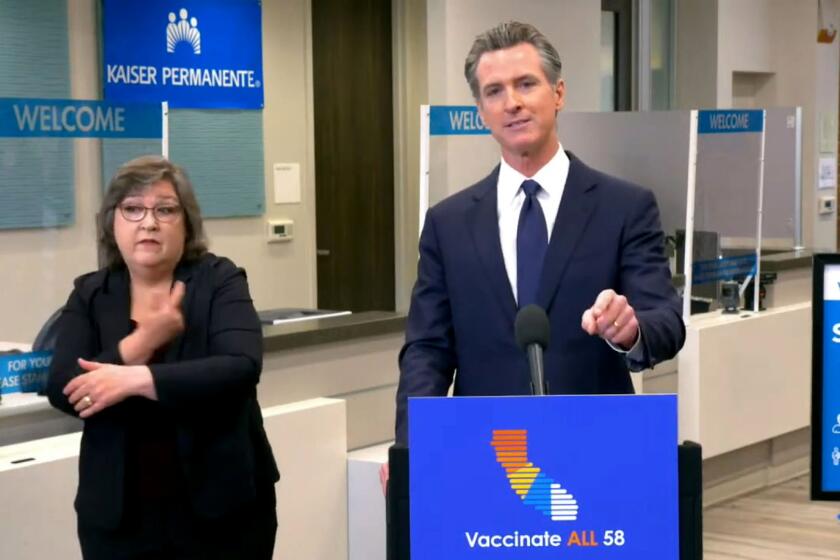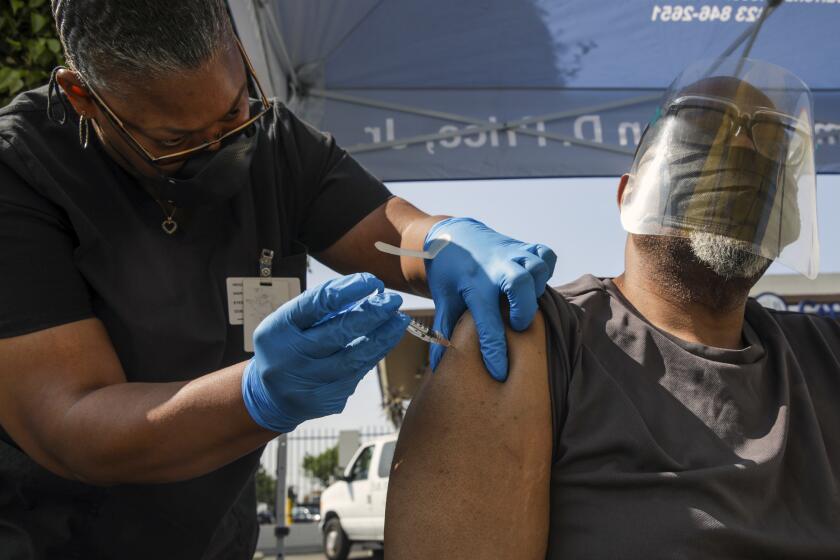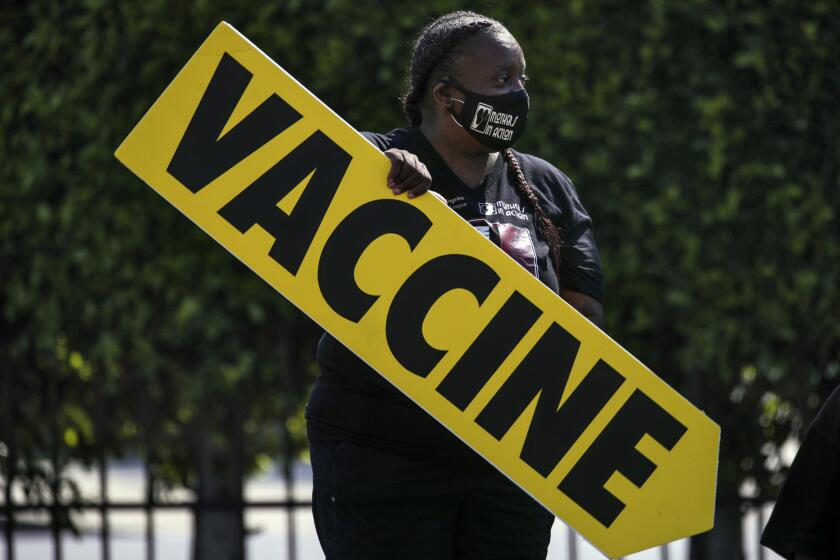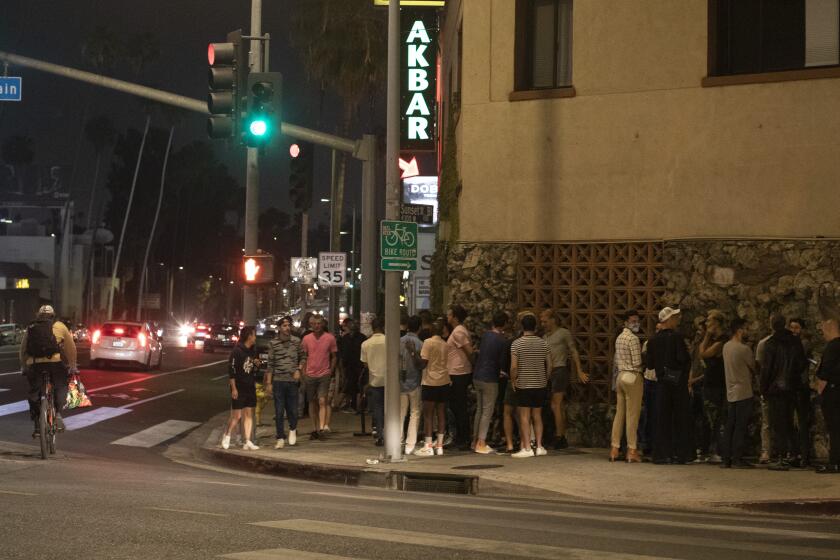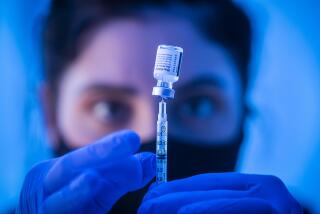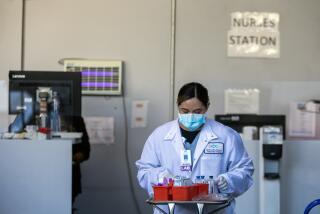California’s new vaccination proof requirement: What you need to know
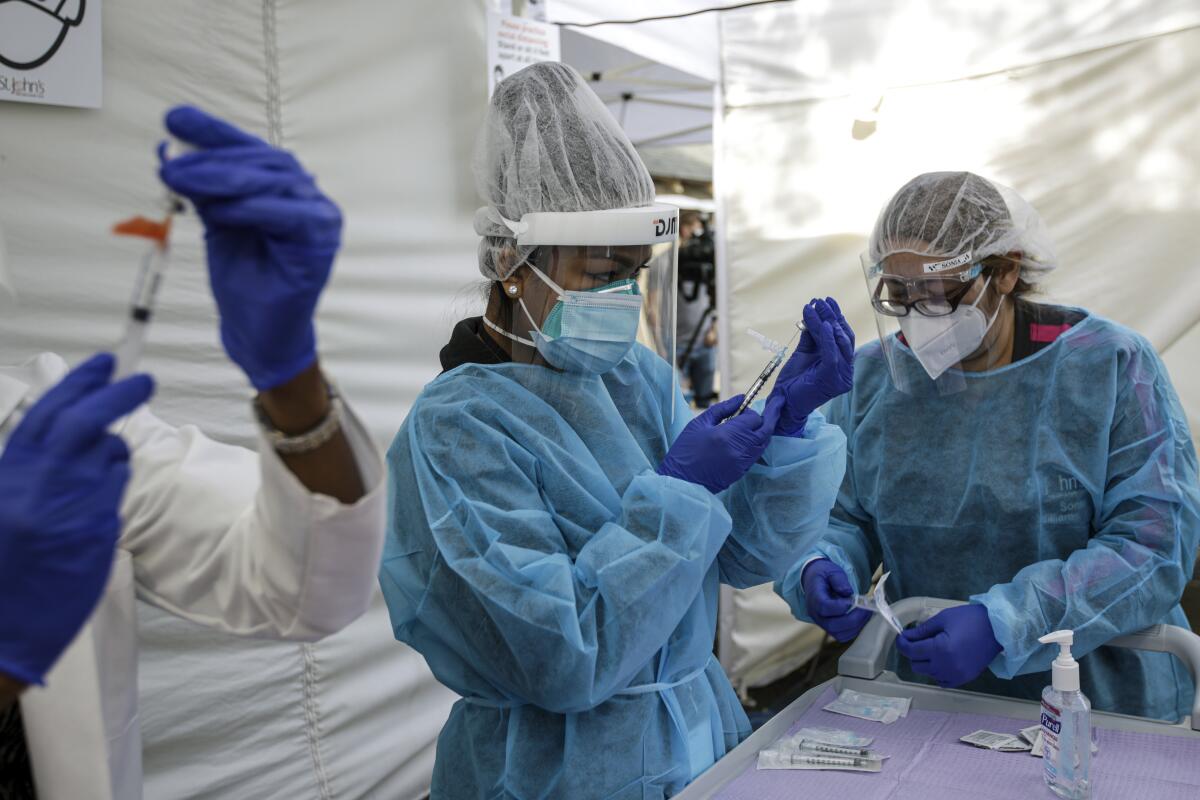
- Share via
With COVID-19 surging in California, state officials are taking another big step aimed at slowing the spread.
Those who work for the state of California, or in public or private healthcare settings, soon will be required to show proof they’ve been vaccinated against COVID-19. If they aren’t vaccinated, or decline to show such documentation, they’ll have to be tested for infection regularly.
The new guidance comes as various cities, educational institutions and private businesses are taking similar steps in hopes of curbing the latest resurgence in coronavirus transmission.
California government and healthcare employees will soon be required to show proof they’ve been vaccinated against COVID-19 or be tested regularly.
Here is a breakdown of the latest rules:
What are the new requirements?
When the new policy goes into effect, state workers will have to show their vaccine status. Those who are unvaccinated, or decline to show proof, will be tested for coronavirus infection at least once a week, according to the California Department of Human Resources.
Public and private healthcare workers will be subject to similar requirements. Those who are unvaccinated will also be subject to testing at least once a week and will be required to wear appropriate personal protective equipment, such as masks.
“This requirement also applies to high-risk congregate settings like adult and senior residential facilities, homeless shelters and jails,” according to a statement from Gov. Gavin Newsom’s office.
For state workers, the new policy will go into effect starting Aug. 2, with testing “phased in over the next few weeks,” officials said Monday. The requirements for healthcare and congregate settings will become effective Aug. 9, though healthcare facilities will have until Aug. 23 to come into compliance.
The city also rules that in indoor public settings, all people, regardless of vaccination status, must wear masks.
Is this a mandate?
No. But the new policy effectively removes the “honor system” in which some workers were able to self-attest to their vaccination status.
Why is California doing this?
Officials are struggling with a new spike in cases.
Over the last week, California has reported an average of 5,800 new coronavirus cases per day, according to data compiled by The Times.
That’s six times the rate seen a month ago — though still well below the massive infection counts seen during the fall and winter surge, when the state was recording more than 40,000 daily cases on average.
Hospitalizations, too, have climbed significantly in recent weeks. On Saturday, 2,781 coronavirus-positive patients were hospitalized statewide, with 617 of them in intensive care, state data show.
Both those figures have more than doubled over the last month.
“As the state’s largest employer, we are leading by example and requiring all state and health care workers to show proof of vaccination or be tested regularly, and we are encouraging local governments and businesses to do the same. Vaccines are safe. They protect our family, those who truly can’t get vaccinated, our children and our economy. Vaccines are the way we end this pandemic,” Newsom said in a statement Monday.
In June, 20% of Los Angeles County’s coronavirus cases were among fully vaccinated residents. But that doesn’t tell the full story.
What are others doing?
Some businesses are requiring vaccinations as workers return to offices. Hollywood has been working on ways to get people vaccinated on sets.
A few government agencies are trying to combat the surge by requiring workers and others to be vaccinated.
Pasadena last week said it will require all city employees to be vaccinated against COVID-19 once the shots receive full federal approval. The new vaccination requirement comes days after approximately a dozen workers tested positive for COVID-19 and several others were forced to quarantine, city spokesperson Lisa Derderian said.
The city has more than 2,000 employees, and about 60% of them have self-reported being vaccinated, Derderian said.
The vaccination requirement will not go into effect until the U.S. Food and Drug Administration approves at least one of the three vaccines that have been given emergency authorization.
Can a journalist ask if I’m vaccinated? What about my employer? What about a bouncer at a bar? Yes, yes and yes. Here’s what HIPAA is and what it means for you.
Pasadena is the first Southern California city to issue such a rule; it follows in the steps of San Francisco, which decided last month to issue a similar order for its 35,000 municipal workers.
The University of California system also announced last week it would require vaccines for all students, faculty and others for the fall term.
New York City is also going to require city workers to be vaccinated or submit to regular testing.
And on Monday, the Department of Veterans Affairs became the first major federal agency to require that healthcare workers get a COVID-19 vaccine.
Times staff writer Faith E. Pinho and the Associated Press contributed to this report.
More to Read
Sign up for Essential California
The most important California stories and recommendations in your inbox every morning.
You may occasionally receive promotional content from the Los Angeles Times.
